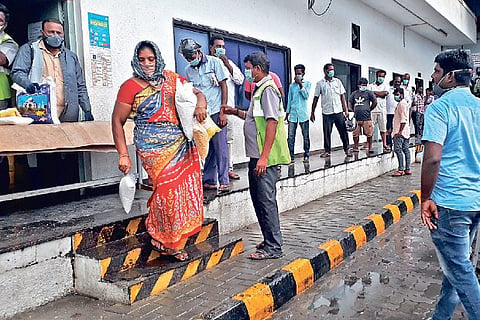

Chennai
On April 12, the Tamil Nadu government restricted volunteers and NGOs from distributing relief items. In a clarification, the government stated that these organisations must work with permissions from the Greater Chennai Corporation and maintain strict hygiene rules while conducting distributions.
Many organisations are working with the Corporation to ensure that distribution takes place smoothly. One such organisation is Chennai Food Bank, founded by the Rajasthan Your Association Metro, which has so far distributed food packets to medical staff at Omanadur Government Multi Speciality General Hospital and migrant workers across the city. Working with the Corporation ensures that the transition of goods takes place in a hygienic manner. “Right from the start, we have been working with the Corporation for assistance in distribution as they will undertake the process in a healthy and hygienic manner to avoid any outbreak. We want to commend them for their efforts during this time,” said Rajesh Baradia, chairman of Chennai Food Bank.
Other organisations, upon receiving permission from the Corporation, continued their distribution services. Volunteers with World Vision India, which has so far distributed 123,069 food packages across India, are required to undergo a three-step process before taking part in the distribution.
“The first is to ensure that the staff give their consent to the distribution based on the parameters set by medical professionals. Staff members with existing medical conditions are not allowed to take part in distribution. In the second step, all staff should undergo COVID-19 training programmes. The third step is to ensure that all entering the field are given basic protection equipment like hand sanitiser, masks, and gloves,” said Franklin James, head of the Humanitarian Emergency Affairs. He added that there must be more proactive measures taken to enforce social distancing following the lifting of the shutdown to prevent second-wave spread of the disease.
Visit news.dtnext.in to explore our interactive epaper!
Download the DT Next app for more exciting features!
Click here for iOS
Click here for Android